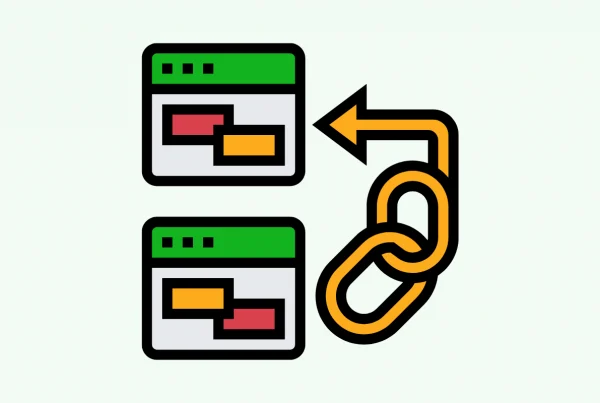Blog article
The Power of Fallback Search in Ecommerce: Converting Constraints to Conversions
Estimated reading time: 6 minutes

Ecommerce platforms are always on the hunt for cool new ways to boost user experience and skyrocket sales. One strategy that’s been flying under the radar? Fallback Search or Fallback Product Recommendations. It’s a lifesaver for pages without sufficiently relevant products. But let’s dive deep into what Fallback Searches really are, and why they might just be the game-changer your online shop needs.
Fallback Search is an advanced search method that ecommerce platforms use when they don’t have a lot of products for a specific search. Instead of showing limited results, it pulls up other related products the customer might like. This means less frustration for the shopper and less chance they’ll ditch your site.
Example of Fallback Recommendations
Consider a scenario wherein a potential customer is browsing your ecommerce store for a “olive green cargo bag”. However, your store only stocks a few models of cargo bags and not in this particular colour. In a typical search scenario, the limited options might disappoint the customer, possibly prompting them to leave your site.
But with a Fallback Searches strategy, your platform can enhance the customer’s experience. It could display a ‘You may also be interested in’ block that includes relevant products. These might include cargo bags in other colours, olive green bags in a different style, or even related categories such as cargo backpacks or cargo shoulder bags, all selected based on their relevance to the original search.

The Impact of Fallback Searches on Ecommerce
You know that feeling when you don’t find what you’re looking for, but stumble upon something even better? That’s the magic of Fallback Searches. It turns what could have been a missed opportunity into a delightful discovery, making shopping more engaging and often leading to that all-important sale.
By ensuring a consistent stream of relevant product recommendations, even in the face of limited search results, you improve the overall browsing experience, encouraging your users to spend more time on the site.
Such an enhancement not only prolongs the user’s stay on the site but also amplifies the likelihood of purchase intent. Fallback Searches is like the store assistant who comes to the rescue, showing you alternatives that might pique your interest.
While our words paint a promising picture of Fallback Searches, real-world data offers more compelling proof. Take a moment to analyse your category pages, group them by their product count, such as those with 0-5, 5-10, or 10-15 products. You may discern a pattern – pages with few product listings often report lower conversions. Want irrefutable evidence? An A/B test, introducing fallback search recommendations on select category pages, will provide clear results. Monitor the variations in conversion metrics and witness firsthand the transformative power of fallback searches.
Challenges Encountered in Fallback Product Recommendations in E-commerce
Fallback Searches, while advantageous, come with their set of complexities:
- Technical Demands: Implementing Fallback Searches necessitates the deployment of complex algorithms. Setting up and maintenance such systems requires expertise. One of the foremost challenges is to create the fallback search algorithm that consistently delivers value. The ideal approach to navigate this intricacy is to utilise vector search. Vector search, based on state-of-the-art technology, allows for better understanding and mapping of user intent by representing products and queries in a high-dimensional space. This makes the search more semantic and context-aware, thus producing more relevant results. However, while vector search is a game-changer, it is still relatively new and requires a deep understanding of machine learning and vector mathematics, adding layers of complexity.
- Balancing Relevance and Variety: While presenting a wider range of products is beneficial, it’s critical to ensure the results remain relevant to the original search to avoid overwhelming or turning off users. This balance becomes particularly challenging when striving for the precision offered by vector search algorithms.
- Resource Intensive: The magnitude of your product catalog and the nuance of your fallback approach can necessitate intensive resources. This is particularly true when refining and optimising newer search methods like vector search, which require continuous data input and tuning.
Why Use Verbolia for Fallback Product Recommendations?
- Plug and Play: With Verbolia, setting up Fallback Searches feels like a breeze. Preview product suggestions and adjust on-the-fly, ensuring your strategy fits just right.
- Smart Recommendations with Vector Search: Verbolia doesn’t just throw random products at users. Using Vector Search technology, it tailors suggestions based on what users genuinely seek, making every recommendation count
Verbolia makes Fallback Product Recommendations both powerful and easy, elevating your ecommerce game and enriching user experiences.
Conclusion
In today’s fiercely competitive digital arena, standing out is more crucial than ever. Here’s where Fallback Searches come in, turning limited product pages into goldmines of opportunities for users. Want to make it even better? Enter Verbolia:
- Broaden Horizons: Say goodbye to narrow, limiting product lists. Give users more, and they’ll stay for more.
- Simplicity Meets Efficacy: Challenges with implementation? Verbolia sweeps them away, making the process a breeze and unlocking Fallback Search’s immense potential.
- Boost and Flourish: With Verbolia, expect increased customer interaction and blossoming sales opportunities.
In essence, Fallback Searches, especially with Verbolia, aren’t just a strategy; they’re your next big step in dominating the ecommerce space. Dive in and soar higher!
About The Author
How can Verbolia help your e-commerce platform.


